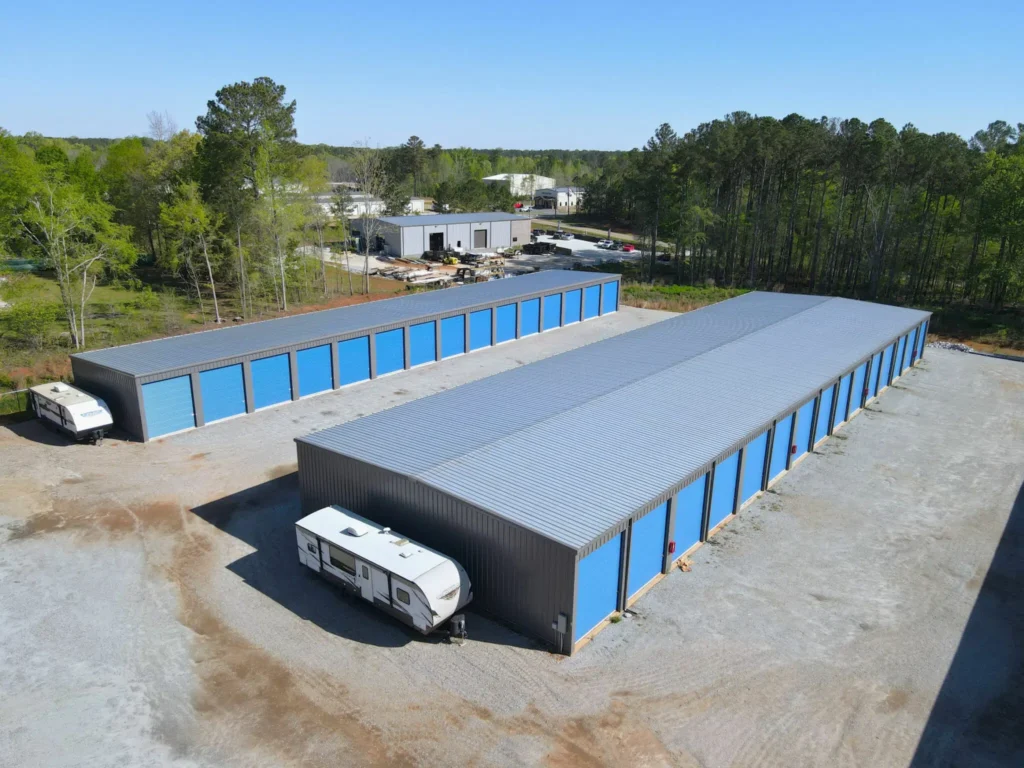What is the minimum lot size required for an RV storage facility?
The minimum lot size requirement for an RV storage facility can vary depending on local zoning regulations. Check with the local planning department to determine the specific requirements in your area.
How do I obtain a permit for an RV storage facility?
To obtain a permit for an RV storage facility, submit the needed application to the local planning or building department. The application typically includes detailed plans for the rv storage, as well as proof of zoning compliance and other requirements.
What are the setback requirements for RV storage facilities?
Setback requirements for RV storage facilities vary by jurisdiction. Generally, you need to maintian minimum distances between the facility and neighboring properties, roads, and other structures. These distances ensure safety and minimize any potential impacts on neighboring properties.
What are the types of zoning for RV Storage Facilities?
There are three main types of zoning that impact RV storage facilities: residential, commercial, and industrial. Residential zoning usually doesn’t allow commercial activities like RV storage, but exceptions can occur through rezoning or permits. Commercial zones are more welcoming to RV storage, but require adherence to local rules on setbacks and operations. Industrial zones provide the greatest leeway for RV storage due to minimal restrictions and larger spaces. Though, you need to also consider potential conflicts with surrounding areas.
How do I handle stormwater runoff from an RV storage facility?
You need to manage stormwater runoff from an RV storage facility in accordance with local regulations. Installing stormwater detention ponds, infiltration trenches, or other stormwater management systems to minimize the impact on surrounding environment.
What type of insurance do I need for an RV storage facility?
The needed insurance coverage for an RV storage facility may include general liability insurance, property insurance, and flood insurance. It’s important to consult with an insurance professional to determine the specific coverage needs for your facility.
Can I store my RV on my residential property?
You may be able to store your RV on your residential property, but zoning ordinances may restrict where and how.
Always check with your local zoning office to determine the specific regulations in your area.
What is the process for rezoning for RV storage facilities?
Submitting an application, attending public hearings, and obtaining approval from the appropriate governing body.
It’s essential to work closely with local planning officials and community stakeholders to navigate the rezoning process successfully.
What are the potential obstacles in rezoning for RV storage facilities?
Potential obstacles in rezoning for RV storage facilities include opposition from residents, businesses, and compatibility issues with existing land uses.
Address these concerns transparently and work with experienced land use attorneys and consultants to increase successful rezoning outcome.
What are the legal implications of non-compliance with zoning regulations for RV storage facilities?
Failure to comply with zoning regulations for RV storage facilities can result in fines, penalties, or even the forced closure.
RV storage facility owners must prioritize compliance and obtain all necessary permits and approvals to avoid severe consequences.





